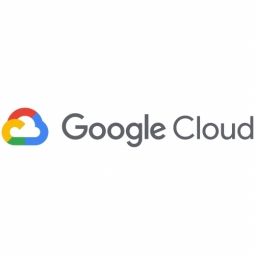Technology Category
- Analytics & Modeling - Machine Learning
- Sensors - Camera / Video Systems
Applicable Industries
- Education
- Equipment & Machinery
Applicable Functions
- Logistics & Transportation
- Sales & Marketing
Use Cases
- Last Mile Delivery
- Predictive Maintenance
Services
- Cloud Planning, Design & Implementation Services
- Data Science Services
About The Customer
90 Seconds is a leading video creation platform founded in 2010 in New Zealand. The company manages a marketplace of 12,000 video creative professionals in more than 160 countries across 70 categories. Its technology empowers brands to plan, shoot, and edit video from anywhere in the world. 90 Seconds' 3,000-plus clients include many global enterprise brands. The company has about 160 team members worldwide, with 60 based at its headquarters in Singapore. Despite a low profile, the business is growing rapidly as multinational online services present innovative marketing and advertising opportunities and brands are keen to produce compelling video content.
The Challenge
90 Seconds, a leading video creation platform, faced challenges in scaling its operations due to rapid expansion. The company, which manages a marketplace of 12,000 video creative professionals across 70 categories in over 160 countries, was initially operating in a colocated data center in the United States. However, the rapid growth of the business led to scalability and cost issues, particularly around content delivery and storage. The company then decided to move to another cloud service. Despite receiving millions of dollars in venture capital and using new technologies to scale the business, 90 Seconds continued to face issues in supporting the growing demand for cloud video production, accelerating software development, and capturing and analyzing data from multiple services to facilitate decision making.
The Solution
90 Seconds decided to migrate to Google Cloud Platform to address its scalability, reliability, and performance issues. The migration was completed in less than a year, with the company moving all its operations to Google Cloud Platform, except for eight years' worth of HD video which it is exploring options to move into the platform from its original colocated data center. 90 Seconds also deployed Kubernetes Engine to run its applications in containers, which provided a foundation to accelerate software development and deployment. The company used BigQuery as a warehouse for transactional, marketing, and finance data, and used visualization tools to review various indicators and make decisions to improve products, seize opportunities, and operate more efficiently. 90 Seconds also used Compute Engine to access infrastructure-as-a-service and Cloud SQL to run its relational database. The company is now evaluating the potential of machine learning through Cloud AutoML to provide deeper and more relevant analysis for brands.
Operational Impact
Quantitative Benefit

Case Study missing?
Start adding your own!
Register with your work email and create a new case study profile for your business.
Related Case Studies.

Case Study
Smart Water Filtration Systems
Before working with Ayla Networks, Ozner was already using cloud connectivity to identify and solve water-filtration system malfunctions as well as to monitor filter cartridges for replacements.But, in June 2015, Ozner executives talked with Ayla about how the company might further improve its water systems with IoT technology. They liked what they heard from Ayla, but the executives needed to be sure that Ayla’s Agile IoT Platform provided the security and reliability Ozner required.

Case Study
IoT enabled Fleet Management with MindSphere
In view of growing competition, Gämmerler had a strong need to remain competitive via process optimization, reliability and gentle handling of printed products, even at highest press speeds. In addition, a digitalization initiative also included developing a key differentiation via data-driven services offers.

Case Study
Predictive Maintenance for Industrial Chillers
For global leaders in the industrial chiller manufacturing, reliability of the entire production process is of the utmost importance. Chillers are refrigeration systems that produce ice water to provide cooling for a process or industrial application. One of those leaders sought a way to respond to asset performance issues, even before they occur. The intelligence to guarantee maximum reliability of cooling devices is embedded (pre-alarming). A pre-alarming phase means that the cooling device still works, but symptoms may appear, telling manufacturers that a failure is likely to occur in the near future. Chillers who are not internet connected at that moment, provide little insight in this pre-alarming phase.

Case Study
Premium Appliance Producer Innovates with Internet of Everything
Sub-Zero faced the largest product launch in the company’s history:It wanted to launch 60 new products as scheduled while simultaneously opening a new “greenfield” production facility, yet still adhering to stringent quality requirements and manage issues from new supply-chain partners. A the same time, it wanted to increase staff productivity time and collaboration while reducing travel and costs.

Case Study
Integration of PLC with IoT for Bosch Rexroth
The application arises from the need to monitor and anticipate the problems of one or more machines managed by a PLC. These problems, often resulting from the accumulation over time of small discrepancies, require, when they occur, ex post technical operations maintenance.

Case Study
Data Gathering Solution for Joy Global
Joy Global's existing business processes required customers to work through an unstable legacy system to collect mass volumes of data. With inadequate processes and tools, field level analytics were not sufficient to properly inform business decisions.







